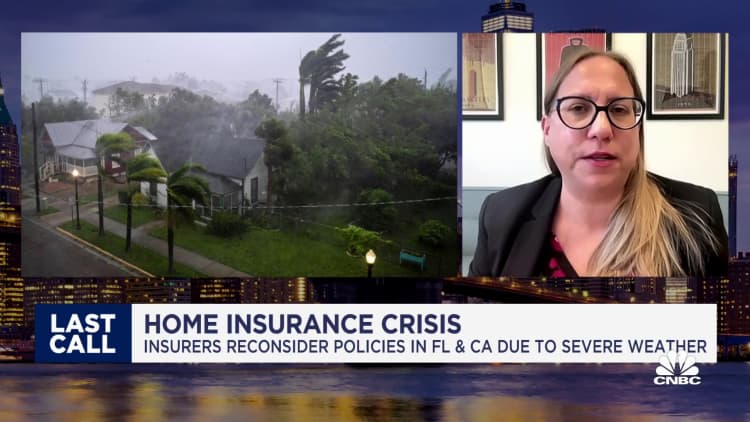Renphoto | E+ | Getty Images
Understanding the Coverage of Homeowners and Renters Insurance
When it comes to homeowners and renters insurance, it’s important to know what exactly these policies cover.
A typical homeowners insurance policy provides coverage for two main areas: property and liability. Property coverage includes your home and its contents, while liability coverage protects you if you are held responsible for injury or property damage to another person. This coverage extends to liability incidents anywhere in the United States.
A renters insurance policy is similar but does not cover the physical structure of the home, only the personal belongings inside it.
Fireworks can cause significant damage, with $59 million in direct property damage reported in 2021, according to the National Fire Protection Association (NFPA).

According to Robert Passmore, vice president of personal lines at the American Property Casualty Insurance Association, fireworks-related damage usually occurs due to fires caused by pyrotechnics.
Fireworks ignited 12,264 reported fires in the U.S. in 2021, with 28% of fires occurring on July 4, as reported by NFPA.
Fortunately, homeowners policies generally cover fire damage, whether it’s to the house, patio furniture, or other property. However, these policies often have deductibles, and policyholders are responsible for paying the initial $500 to $1,000 of the damage.
Passmore clarifies that this coverage applies regardless of whether the policyholder or someone else, such as a neighbor or friend, caused the fireworks-related fire.
“Fireworks-related fires are a common occurrence, especially in wildfire-prone areas,” warns Passmore.
Additionally, policies may also offer coverage for other damages resulting from fireworks, such as a broken window caused by a stray projectile.
According to NFPA, fireworks-related injuries have increased significantly over the past 15 years, with 10,200 reported injuries in 2022. In cases where policyholders are legally liable for such injuries, their liability insurance may provide coverage.
Exclusions and Illegal Fireworks
It’s important to note that insurance policies typically include exclusions, outlining instances in which the insurer will not pay a claim.
Exclusions have become more common in insurance policies, with specific details varying from one policy to another, according to insurance expert Peter Kochenburger.
For example, intentional acts, such as purposefully damaging a house with a bottle rocket, would likely not be covered by a policy. In some cases, a policy may explicitly exclude coverage for fireworks.
Therefore, it’s crucial to ensure that the fireworks you purchase are legal in your state to avoid any potential issues. This way, you won’t be caught off guard by exclusions related to wrongful or criminal acts.
“You want to make sure the fireworks you’re purchasing are legal in your state.”
Peter Kochenburger
Executive Director of the Insurance Law Program at the University of Connecticut
In scenarios involving fireworks, coverage will depend on various factors, including the circumstances, type of fireworks, how they were used, and the interpretation of policy exclusions by state courts. Generally, exclusions tend to apply more frequently to liability claims rather than personal property claims.
To avoid uncertainties, it’s best to use legal fireworks and ensure compliance with state regulations.
“You don’t want to get tripped up by exclusions for wrongful or criminal acts,” advises Kochenburger. “You want to make sure the fireworks you’re purchasing are legal in your state.”
Denial of responsibility! VigourTimes is an automatic aggregator of Global media. In each content, the hyperlink to the primary source is specified. All trademarks belong to their rightful owners, and all materials to their authors. For any complaint, please reach us at – [email protected]. We will take necessary action within 24 hours.


